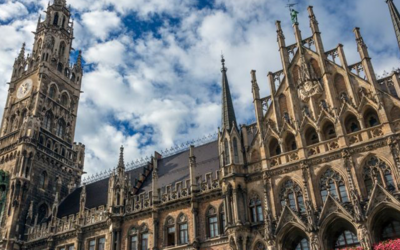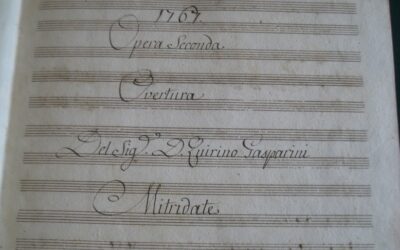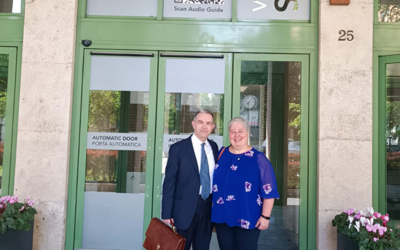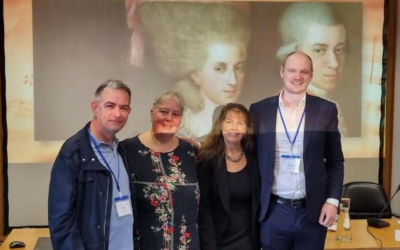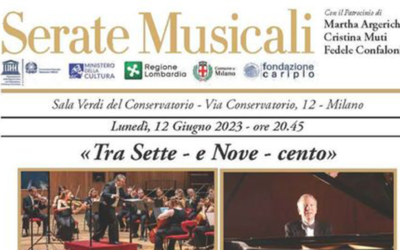Wolfgang Amadé Mozart
The Vienna Disaster: The Crumbling Facade of the Mozart Legend
The failure of La Finta Semplice in Vienna was a turning point for the Mozart family, revealing the cracks in the facade of Wolfgang’s prodigious reputation and prompting a desperate escape to Italy in search of redemption.
Mozart in Italy: The Untold Story
Was Mozart truly a solitary genius, or was he merely the instrument of his father’s ambition? “Mozart in Italy” challenges the conventional narrative, revealing a complex dynamic between father and son that shaped the course of music history. Prepare to question everything you thought you knew.
“Everyone in Vienna lamented that little Mozart was unable to compose the opera, or that it was so poorly executed that it could not be performed, or that it was his father, and not he, who had written the music”
Mozart in Italy
The story of Mozart’s early successes often overlooks the harsh reality of his and his family’s struggles, particularly during their time in Vienna. Far from the romanticized tales of a prodigious genius, the reality was one of disappointment, failure, and unmet expectations. This chapter in Mozart’s life serves as a stark reminder that not all was as it seemed behind the scenes.
The Humiliation of La Finta Semplice
In 1768, the young Wolfgang, at just twelve years old, was tasked with composing the opera La Finta Semplice (The Feigned Simpleton), a challenge that proved too great. Despite Leopold Mozart’s fervent efforts to present his son as a child prodigy, capable of remarkable feats, the opera was met with harsh criticism and suspicion. Many in Vienna believed that the music had not been composed by Wolfgang at all, but rather by his father, or that the work was simply too poor to be performed.
The opera was riddled with errors, particularly in its handling of the Italian language and prosody, which was crucial for opera. Words were mispronounced, syllables were misplaced, and the music itself was simplistic and repetitive, failing to meet the standards expected by the Viennese audience. The performers, unimpressed by the quality of the work, refused to stage it, leading to a complete collapse of the project. The impresario, Afflisio, known for being a shrewd and sometimes unscrupulous businessman, quickly recognized the deficiencies in the opera and refused to invest further in what he saw as a doomed venture.
The Fallout: A Tarnished Reputation
Leopold’s attempts to salvage the situation only made matters worse. Despite his desperate pleas and efforts to promote the opera, the Viennese court and public remained unconvinced. The involvement of Leopold in the composition became increasingly apparent, particularly in the detailed corrections and revisions he made to the score. This only further fueled the belief that Wolfgang was not the musical genius his father claimed him to be.
The failure of La Finta Semplice had significant repercussions. The Mozarts were not only humiliated in Vienna but also faced consequences back in Salzburg. Leopold’s reputation suffered greatly, with the Archbishop of Salzburg suspending his salary and expressing his displeasure at the whole debacle. The family’s future in Salzburg became uncertain, prompting Leopold to consider a drastic change.
The Italian Escape
Facing a hostile environment in both Vienna and Salzburg, Leopold decided that the only way to restore their fortunes was to leave Austria and embark on a tour of Italy, the heartland of music. He hoped that Italy would offer the opportunities and recognition that had eluded them in Vienna. With Wolfgang’s youth still an asset, despite his growing age, Leopold meticulously planned the trip, securing letters of recommendation and financial support.
However, the decision to leave Salzburg came at a cost. Nannerl, Wolfgang’s sister, and their mother were left behind, forced to live in relative obscurity while Leopold and Wolfgang pursued fame and fortune in Italy. The journey to Italy marked a turning point for the Mozart family, as they sought to escape the shadow of their failures and start anew.
You May Also Like
The Return of Gatti’s Aria
In the magnificent Max Joseph Hall of the Residenz München, tenor Daniel Behle performed the aria “Puoi vantar le tue ritorte” by Luigi Gatti, taken from his opera Nitteti. This concertante piece, for which we composed the cadenzas, was brought to life by the Salzburger Hofmusik orchestra under the direction of Wolfgang Brunner.
Quirino Gasparini’s Music Performed for the First Time
For the first time in modern history, Quirino Gasparini’s music has been performed. This concert, featuring arias from Mitridate and Beethoven’s Seventh Symphony, was conducted by Maestro Leonardo Muzii, with soprano Anastasiia Petrova.
Teaching Mozart at Bocconi University
We delivered a four-hour lecture on Mozart at Bocconi University, showcasing unpublished music by Gasparini, Gatti, and Tozzi while comparing textual and musical treatment with Mozart’s works. Unseen variants from Le Nozze di Figaro were also revealed.
New Revelations About Mozart at the Évora Forensic Conference
At the Évora Forensic Conference, new research confirmed that both Mozart’s personal catalogue and the signatures on his violin concertos are forgeries, challenging long-held beliefs.
Modern Premieres at Bayreuth
The modern premieres of Antonio Tozzi, Luigi Gatti, and Tommaso Traetta’s works at Bayreuth brought long-overlooked Italian composers back into the spotlight. These performances, transcribed and revised by Luca Bianchini and Anna Trombetta, have restored the place of these remarkable composers in music history.
Luchesi’s Concerto Revived at Milan’s Sala Verdi
A standing ovation followed the performance of our revised edition of Luchesi’s Concerto in F for piano and strings at the Sala Verdi in Milan, conducted by Maestro Giorgio Rodolfo Marini and performed by the Insubria Chamber Orchestra.


